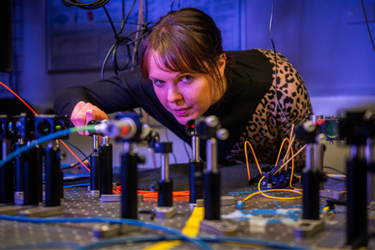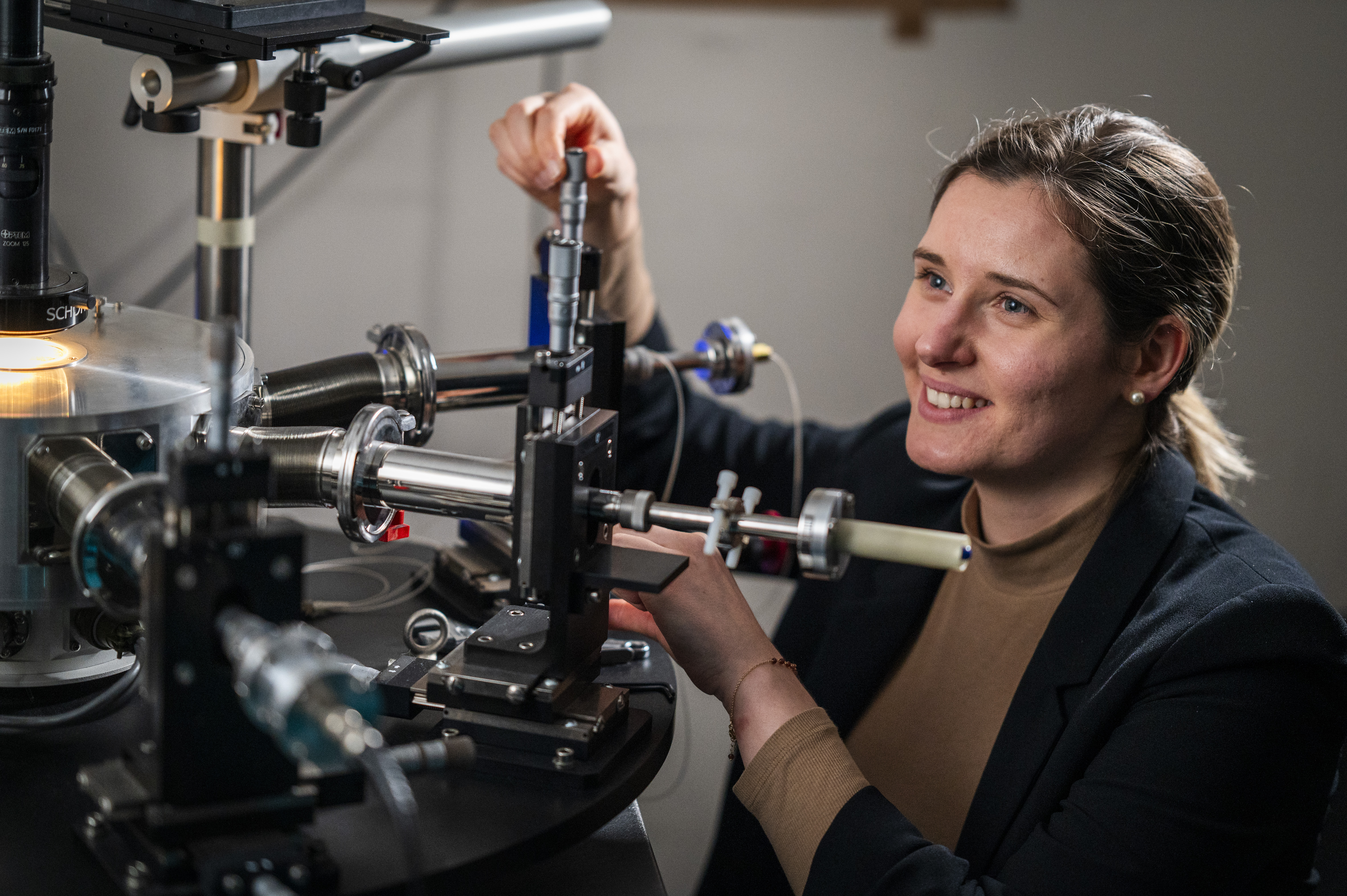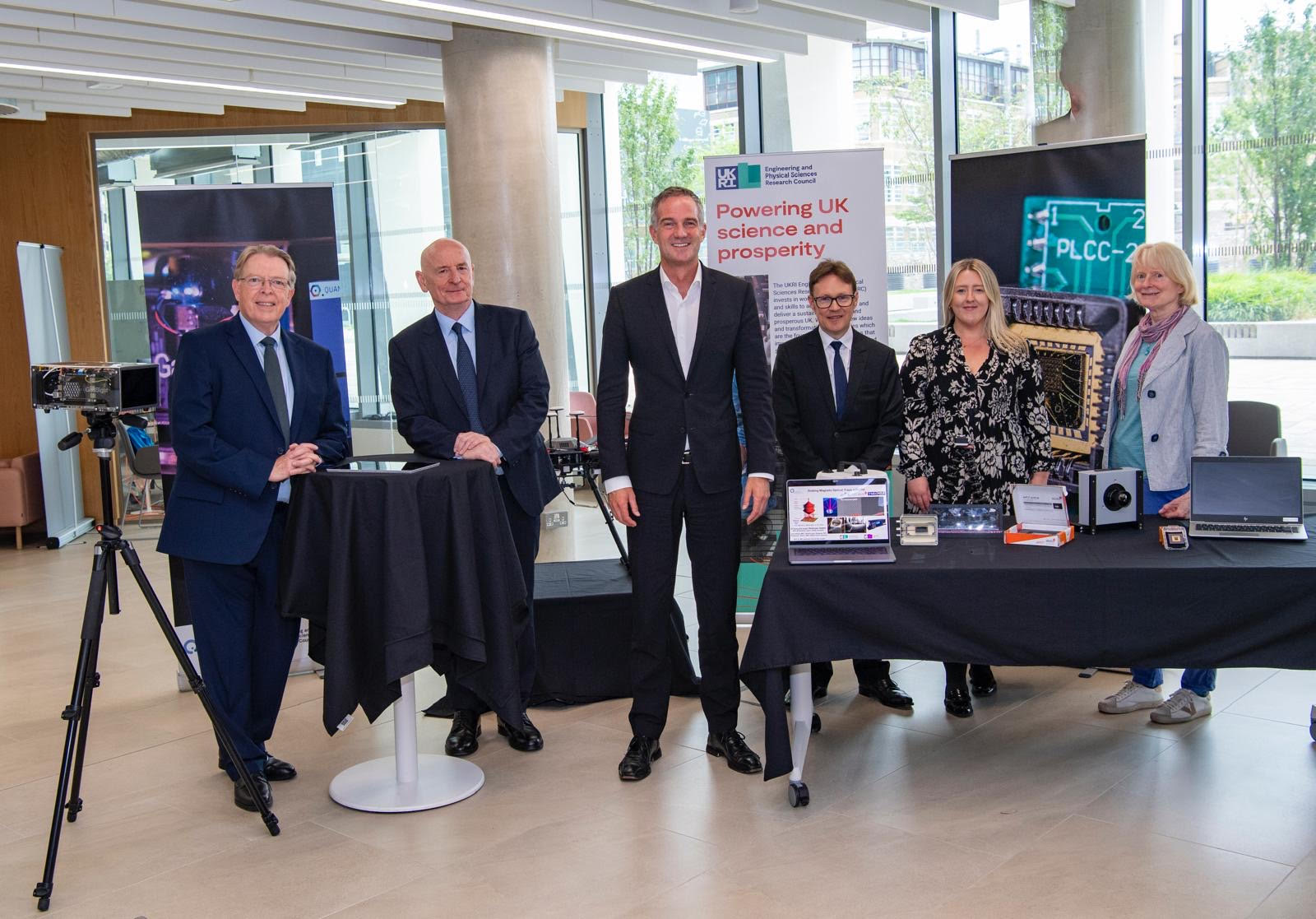New Quantum Internet To Help Revolutionise Data Processing And Cyber Security

In a groundbreaking move set to revolutionise cybersecurity and data processing, Heriot-Watt University has been chosen to lead the development of a "quantum internet" as part of a £160 million UK government investment in quantum technology.
The Integrated Quantum Networks (IQN) Hub, led by Heriot-Watt, is one of five new quantum technology hubs announced by the UK government. The initiative aims to establish Britain as a global leader in quantum innovation and cybersecurity, addressing the staggering £27 billion annual cost of cybercrime to UK businesses.
Professor Gerald Buller, who will lead the IQN Hub at Heriot-Watt, explains:
"The Integrated Quantum Networks Hub will provide the research required towards the establishment of a quantum internet. We're focusing on delivering quantum networks at a range of distance scales, from local networks up to global satellite-based connections."
Key features of the quantum internet include:
- Unbreakable encryption: Utilising quantum mechanics principles to create encryption keys that are virtually impervious to hacking attempts. It’s like changing a lock every time someone tries to pick it.
- Enhanced computing power: Connecting multiple quantum computers to produce enormous computational capabilities.
- Improved data processing: Potential to revolutionise fields such as healthcare, artificial intelligence, and environmental monitoring.
Professor Gill Murray, Deputy Principal for Enterprise and Business at Heriot-Watt University, highlighted the broader implications of the announcement:
“The launch of these five new quantum hubs is a significant milestone for the UK and represents a major shift in data security and cutting-edge applications across all sectors. The UK has established itself as an early pioneer, aligned with the government's national quantum strategy aiming to become a quantum-enabled economy by 2035. These hubs form a critical piece of that roadmap by tackling key research and development challenges around quantum networking, sensing, computing and more.
“For Heriot-Watt University specifically, the IQN Hub has several roles to play. It will firstly keep Scotland and the UK at the forefront of quantum technologies, and transform the modern economy and society. Secondly, it’s a notable step forward for the education sector as universities like ours will be at the forefront of developing and upskilling the future workforce working and living in a quantum-enabled future across design, engineering, manufacturing and the required support services. We also anticipate interest in the IQN Hub to attract talent to the UK from around the world that will drive international partnerships and business opportunities. We are incredibly eager to get stuck in and help develop a robust workforce and supply chain pipeline.”

Dr Lisa Saalbach electronically probing the next generation of single-photon detectors in a cryogenically cooled probe station. Credit: Heriot-Watt University
The IQN Hub brings together over 40 non-academic collaborators, including startups, multinational corporations, and organisations like the National Cyber Security Centre. With over £20 million in partner support, the hub aims to translate quantum innovations into new products and services.
As the UK aims to become a quantum-enabled economy by 2035, these hubs form a critical piece of the national quantum strategy. They are expected to drive entrepreneurship, workforce development, and provide regulatory input into the rapidly emerging UK quantum industry, potentially sparking significant economic growth and job creation in the coming years.
Secretary of State for Science, Innovation and Technology, Peter Kyle, said:
"We want to see a future where cutting-edge science improves everyday lives. That is the vision behind our investment in these new quantum technology hubs, by supporting the deployment of technology that will mean faster diagnoses for diseases, critical infrastructure safe from hostile threats and cleaner energy for us all.
“This isn't just about research; it's about putting that research to work. These hubs will bridge the gap between brilliant ideas and practical solutions. They will not only transform sectors like healthcare and security, but also create a culture of accelerated innovation that helps to grow our economy.”

Quentin Pankhurst (bio hub), Gerald Buller (IQN), Peter Kyle MP, Douglas Paul (PNT), Kirsty Annand (Quantum sensing and timing), Viv Kendon (Q Computing)
With quantum computers already demonstrating the ability to process certain tasks exponentially faster than classical computers, the development of a quantum internet represents a large leap forward in computing technology.
The race to develop quantum technology is heating up globally, and with this significant investment and Heriot-Watt University's leadership, the UK is positioning itself at the forefront of this technological revolution.
Source: Heriot-Watt University
